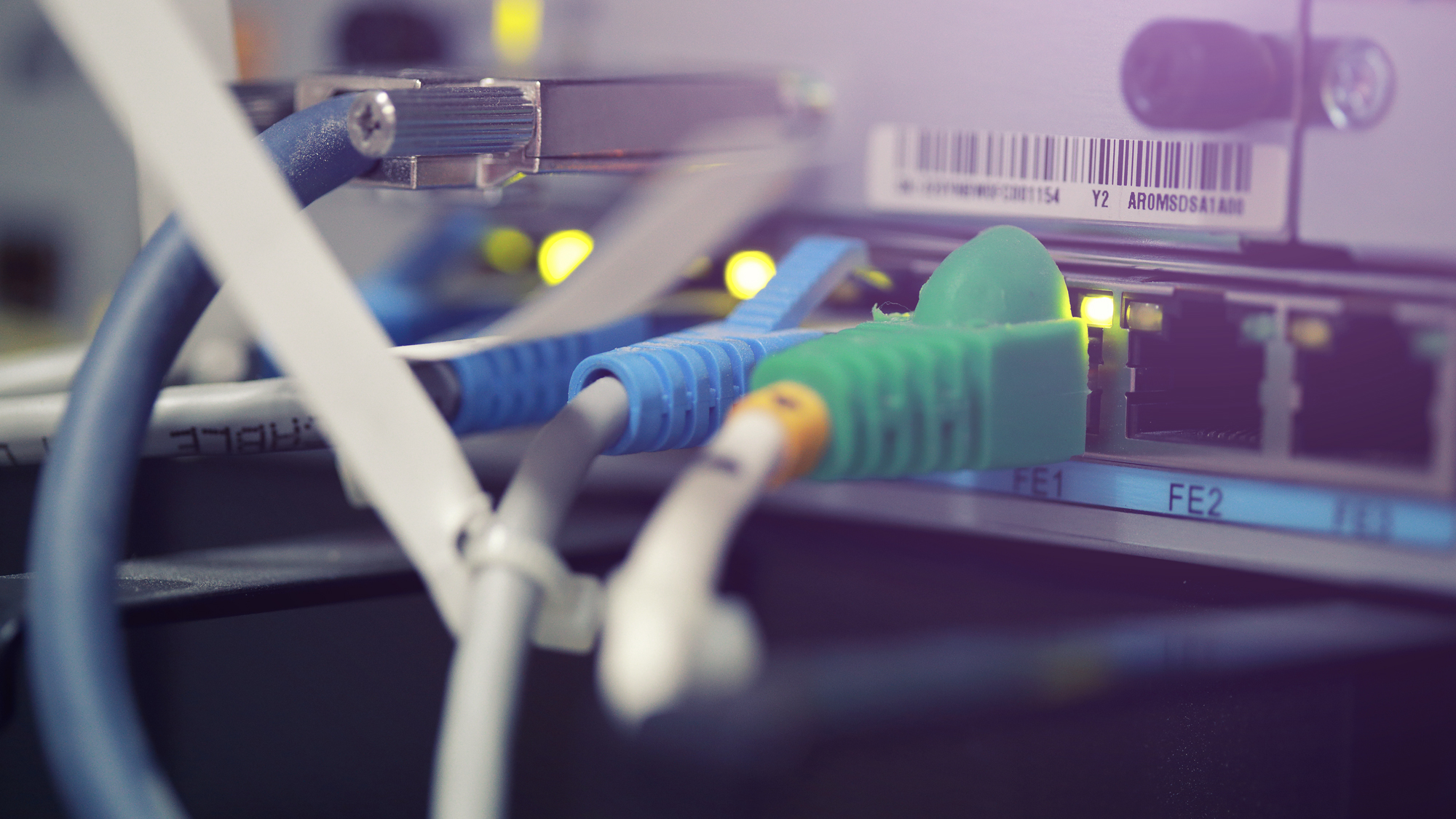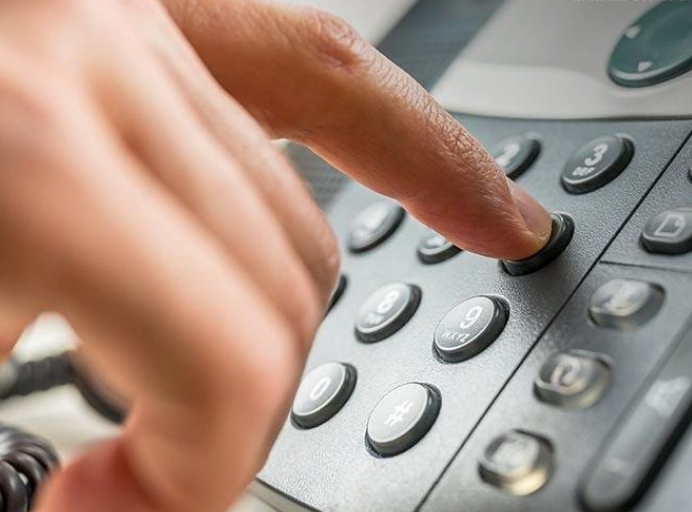The Big Switch Off
In 2025, BT is due to switch off ISDN and PSTN services. But what’s happening and how will the switch off impact your business?
In 2025, BT is due to switch off ISDN and PSTN services. But what’s happening and how will the switch off impact your business?
In recent years there’s been a massive investment and rollout nationally in super-fast fibre broadband, as well as a broad variety of new Ethernet alternatives which provide improved service over ISDN and PSTN. BT hasn’t installed any new ISDN lines within central London since 2014 which is an indication of just how many organisations have already moved away from the technology.
However, there are still many companies and individuals who use ISDN. It’s for that reason that BT has given such a long notice period for the switch off.

Recent investment in communications networks within the UK has made fibre broadband services widely available and affordable to small businesses. What this means is that IP-based alternatives (like VoIP and SIP) are the most viable alternatives for your business post-ISDN.

VoIP is a general term used to describe routing voice calls over an IP network.
Voice over Internet Protocol is already in use by many organisations. The term is closely associated with hosted telephones, where a telephone system installed at a customer’s premises is replaced with a central system shared between many different locations.
Flexible VoIP telephony systems can be delivered fully hosted in the cloud, on-premise or a combination of both (hybrid).
They are easy to manage and incorporate a number of features including instant chat, video conferencing, screen sharing and phone calls through mobile apps.
Just click the button below or give us a call on 0330 002 2111 to discuss how we could help.
Get StartedSession Initiation Protocol (SIP) is a phone line carried directly over your fibre broadband connection, eliminating the requirement for an ISDN phone line in its entirety.
SIP services are generally used to connect lines to a telephone system and these are a direct replacement for the ISDN technology.
SIP Trunking is designed to support real-time multimedia sessions between groups of participants. In addition to telephone calls, SIP can also be used to set up video and audio multicast meetings, or instant messaging conferences.
At Challenger we’ve been providing SIP lines for years. We’ve helped many organisations make the switch from ISDN to SIP services. If this is something you’d be interested in discussing with us, get in touch today!
We’ve got a few years to go until 2025 but that doesn’t mean you should wait until the last minute to switch your service away from ISDN. There are many advantages to switching to either VoIP or SIP right now and at Challenger, we’re ready and waiting to help you through that process.

Supreme flexibility – Plug in and connect anywhere in the UK. Move offices without as much hassle or integrate non-office-based staff into the system without unnecessary issues or effort.
Resilience – You can have more than one fibre line installed to allow for a backup should the line ever be damaged or fail. This means you can continue business uninterrupted.
Features, features, features – As we touched on earlier, IP solutions like VoIP and SIP offer a broad range of features which simply were not available on ISDN networks. You’ll have better control and integration as well as in-built analytics systems which will give you a better view of how the systems are working for you.
Challenger are expert VoIP providers, with years of experience in integrating the technology into effective use within an organisation. During 2020 we helped hundreds of businesses move to remote working setups utilising the flexibility and resilience of VoIP and SIP Trunks. We also assign our customers a dedicated VoIP Account Manager, who is your main point of contact here in the office and conducts quarterly reviews to ensure that your products are working as they should be.
Still struggling to work out what this could mean to your business? Get in touch with us today on 0330 002 2111 or info@cmc.uk.net to see how we can help.

If this is something you’d be interested in discussing with us, contact us today!

Alexander Graham Bell makes the world’s first telephone call on March 10th
First telephone exchange (London)
First international telephone service between London and Paris
First coin-operated phone box (London)
First automatic exchange with no operator needed (Surrey)
First long distance cable in Europe laid, between Leeds and Hull
Introduction of the speaking clock
The iconic red phone box was designed by Sir Giles Gilbert Scott
Introduction of the 999 emergency services number
First long distance call without an operator
Post Office Telecommunications established
The last UK manual exchange closes
Introduction of System X – the second national digital telephone exchange (London)
British Telecommunications (BT) established – separated from the Post Office
Integrated Services Digital Network (ISDN) launched
Introduction of first commercially available dial-up internet
First home broadband service launched in the UK
First residential ‘Full Fibre’ to the premises (mP) connection goes live
Launch of superfast broadband in the UK
First ‘fibre only’ exchange goes live
(Oxfordshire)
Openreach Limited incorporated as a wholly owned subsidiary of BT
Plans to retire the old telephone network within seven years are announced
Salisbury becomes the first Openreach Full Fibre city in the UK
Openreach will stop selling copper products, initially at an exchange level and then nationally
The Big Switch Off
By the end of 2025, the old analogue phone network will be retired and everyone in the UK will be upgraded to digital phone lines
Getting ready for VoIP
The current network has been around for over 35 years and has served the country well, however, equipment in telephone exchanges is now reaching the end of its life.
In order to provide fast broadband across the UK, Openreach is replacing the existing copper network with an Ultrafast Full Fibre digital network. Where Ultrafast Full Fibre is available, a VoIP service will be the only one that is provided.
VoIP stands for Voice over Internet Protocol. With VoIP, all calls and data are sent over the internet and at least part of the network uses a fibre line.
Fibre to the Cabinet (FTTC) will remain the main offering unless Fibre to the Premises (FTTP) is available.
Service providers will need to migrate the service to Single Order Generic Ethernet Access (SoGEA), which continues to use the copper from the premises to the street cabinet and then fibre to the exchange. This means that voice calls and all other devices must work over the internet. A digital voice service, such as VoIP, would have to be ordered separately from a service provider, and customers may need to buy additional or new equipment.
By the end of 2025 analogue lines will be withdrawn and replaced by digital phone lines provided over FTTP and SoGEA, although there will always be exceptions in some areas, where specific needs remain.
To minimise the number of analogue lines being added to the network, when a telephone exchange can provide FTTP to 75% of the premises it serves analogue services will stop being sold in that area and any orders rejected. This has already started to happen.
As of January 2022, Openreach has stopped selling copper products in 220 locations. Every quarter they are letting service providers know which telephone exchanges and areas will go into the ‘stop sell’ category. There will always be 12 months’ notice before a telephone exchange is put into this category. Stop sell covers new supply, working line take-overs (such as moving house), changing service provider, restarting stopped lines, upgrading to a higher bandwidth package and contract changes.